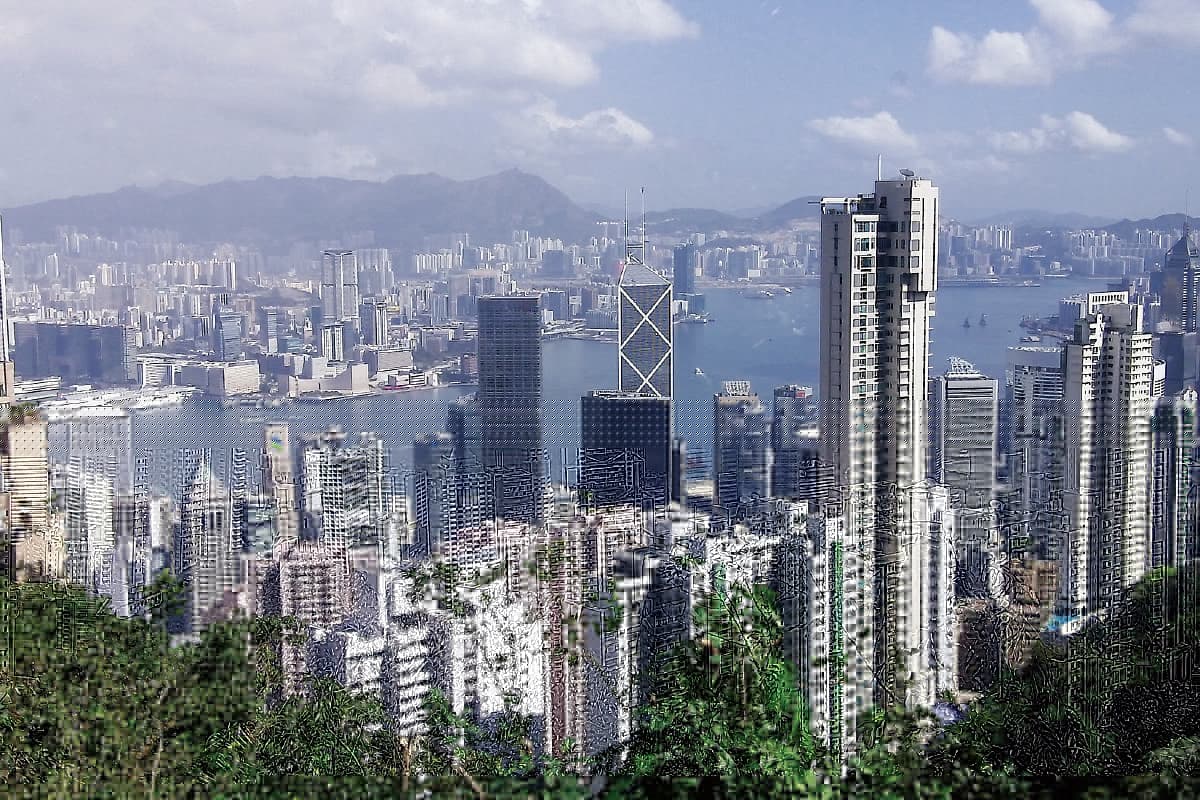
This article first appeared in City & Country, The Edge Malaysia Weekly on July 19, 2021 - July 25, 2021
During peak hours, cars and pedestrians fill the streets of Hong Kong, one of the world’s most densely populated places. With business, trade and culture continuing to give life to the city of about 7.5 million residents, its property market remains vibrant despite the pandemic.
Located on the southern coast of China, Hong Kong’s commercial landmarks include the Bank of China Tower and the Jockey Club Innovation Tower. Known for its skyscrapers, luxurious penthouses and lofty apartments, the city is also known for its skyrocketing property prices and yields, making it one of the most expensive residential markets in the world.
According to a Business Insider report, a five-bedroom penthouse at The Peak, an upscale neighbourhood for billionaires and CEOs, sold for an astounding US$59 million (US$17,542 psf) in February. The transaction was regarded as the most expensive apartment per sq ft sold in Asia. The South China Morning Post has also reported on the soaring rental rates there, such as a 7,022 sq ft detached house on 73 Mount Kellett Road that is fetching as much as HK$1.6 million (US$206,000, or HK$228 psf) a month.
Meanwhile, issues of affordability and housing inequality, with a shortfall in public housing, and the growing wealth gap are prevalent in the city. According to the East Asia Forum, the average household in Hong Kong has to spend 20 years of earnings to purchase a 60 sq m flat at an average cost of US$1.24 million.
Martin Wong, director and head of research and consultancy (Greater China) at Knight Frank, says in an email: “Given that the unemployment rate is declining but still at high levels, there is concern about affordability for the mass residential market and whether the purchasing power can last.”
Nonetheless, the demand for residential developments is still solid in Hong Kong, he notes. “With buying sentiment remaining robust, we expect overall residential prices in the city to grow another 2% to 3% in the second half of 2021.”
Wong adds, “With the economy recovering and potential reopening of the border with the Chinese mainland, buying sentiment has been strong in both the primary and secondary residential markets. As at early July, the total number of transactions had reached more than 70% of last year’s total.”
He lists the current opportunities in the residential segment there. “The interest rate has remained low and this has led to more induced demand in the residential market. Prospective buyers can get a high mortgage ratio for residential properties transacted at less than HK$10 million and therefore, this segment will continue to be supported.
“On the other hand, the luxury home market is active as buyers of such properties do not have affordability concerns. With the potential reopening of the border, the luxury sector will be further supported by purchasing power from the mainland.”
According to Knight Frank Hong Kong’s June report, the residential market remained robust in May. “According to the Land Registry, 7,084 transactions were recorded in May, a drop of 3.3% month on month (m-o-m). The primary market outperformed, recording 1,572 transactions, a surge of 47.3% m-o-m,” says the report.
“The latest official statistics show that the average residential price edged up 0.4% m-o-m in April, the highest level since July 2019. Newly launched projects recorded brisk transactions, reflecting the strong demand from local buyers.”
For new developments, The Pavilia Farm III — co-developed by New World Development and MTR Corp atop Tai Wai Station — was nearly 80 times oversubscribed, the highest subscription volume since 1997.
“The luxury market also followed the upbeat momentum with strong purchase sentiment. A few significant transactions in the ultra-prime segment were recorded, including a 3,603 sq ft house at Shouson Peak, which was sold for HK$310 million or HK$86,039 psf, and a 2,945 sq ft duplex unit on 19/F of 21 Borrett Road, which was sold for HK$250 million or HK$84,900 psf,” says Knight Frank Hong Kong.
On the leasing front, the bulk of the demand is still coming from local residents, says the report. “Significant transactions include a unit at The Belcher’s in Mid-Levels West, covering 2,692 sq ft, which was rented for HK$154,000 a month. As Hong Kong’s financial regulators have announced that senior executives in the financial industry who meet certain criteria can seek an exemption from compulsory quarantine when they return or travel to Hong Kong, near-term leasing demand from expatriates is expected to rise.”
As for the outlook of the residential segment in Hong Kong, Knight Frank appears confident about its recovery. “Amid the recent easing in the Covid-19 situation and the massive rollout of the vaccination programme, the economy is gradually improving, leading to improved sentiment in the residential market,” says the firm.
“With the likely resumption of cross-border travel as the government further eases quarantine rules, we maintain a positive outlook for Hong Kong’s residential market. We expect overall prices to increase 3% to 5% this year.”
Save by subscribing to us for your print and/or digital copy.
P/S: The Edge is also available on Apple's AppStore and Androids' Google Play.


